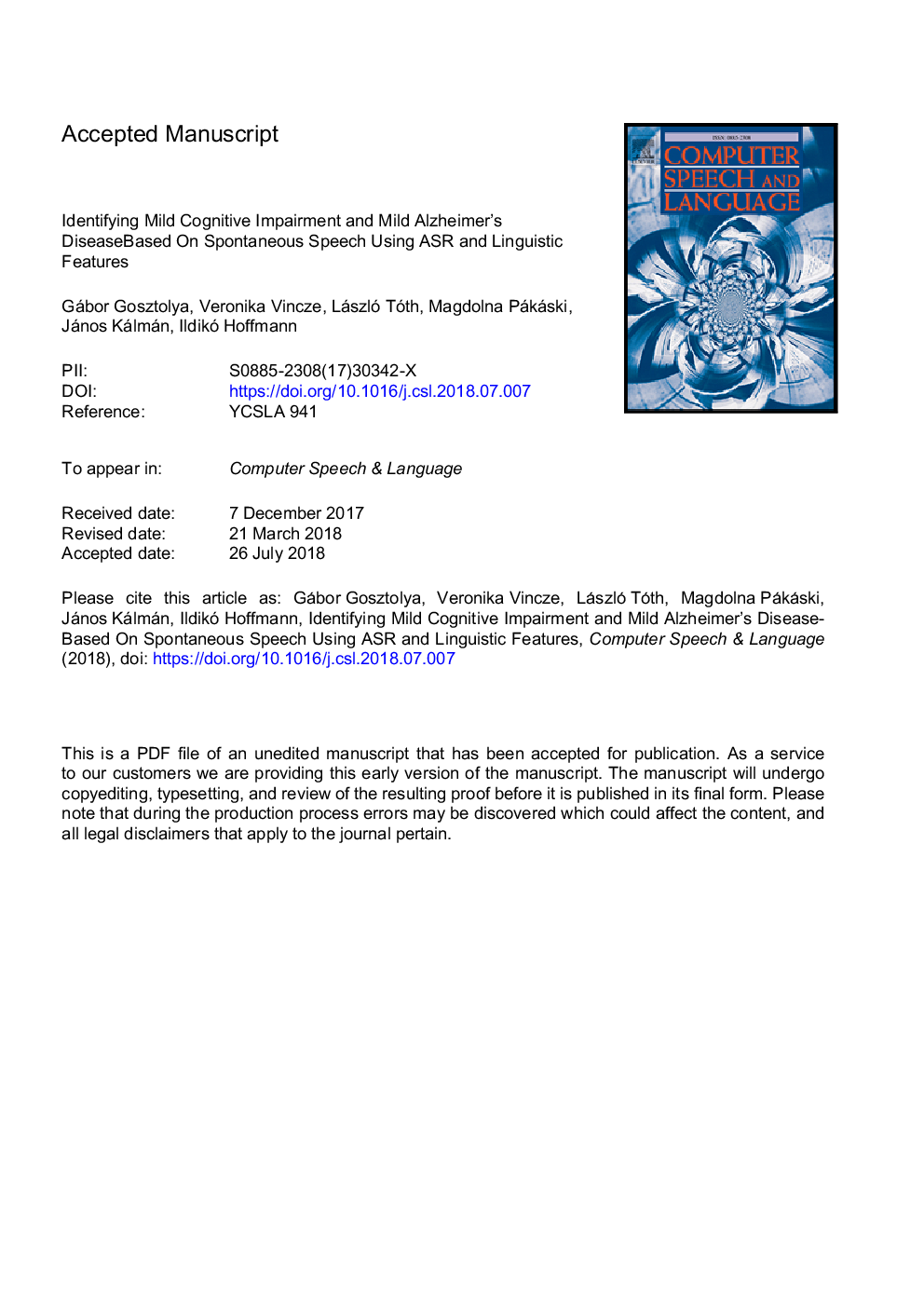| Article ID | Journal | Published Year | Pages | File Type |
|---|---|---|---|---|
| 9952419 | Computer Speech & Language | 2019 | 15 Pages |
Abstract
Alzheimer's disease (AD) is a neurodegenerative disorder that develops for years before clinical manifestation, while mild cognitive impairment is clinically considered as a prodromal stage of AD. For both types of neurodegenerative disorders, early diagnosis is crucial for the timely treatment and to decelerate progression. Unfortunately, the current diagnostic solutions are time-consuming. Here, we seek to exploit the observation that these illnesses frequently disturb the mental and linguistic functions, which might be detected from the spontaneous speech produced by the patient. First, we present an automatic speech recognition based procedure for the extraction of a special set of acoustic features. Second, we present a linguistic feature set that is extracted from the transcripts of the same speech signals. The usefulness of the two feature sets is evaluated via machine learning experiments, where our goal is not only to differentiate between the patients and the healthy control group, but also to tell apart Alzheimer's patients from those with mild cognitive impairment. Our results show that based on only the acoustic features, we are able to separate the various groups with accuracy scores between 74-82%. We attained similar accuracy scores when using only the linguistic features. With the combination of the two types of features, the accuracy scores rise to between 80-86%, and the corresponding F1 values also fall between 78-86%. We hope that with the full automation of the processing chain, our method can serve as the basis of an automatic screening test in the future.
Keywords
Related Topics
Physical Sciences and Engineering
Computer Science
Signal Processing
Authors
Gábor Gosztolya, Veronika Vincze, László Tóth, Magdolna Pákáski, János Kálmán, Ildikó Hoffmann,
